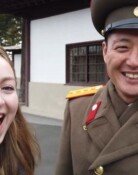USFK’s withdrawal from S. Korea surfaces in White House
USFK’s withdrawal from S. Korea surfaces in White House
Posted August. 19, 2017 07:13,
Updated August. 19, 2017 07:47
“There is no military solution. Forget about it,” White House chief strategist Steve Bannon said in a media interview on Thursday, noting that Washington could consider negotiation to withdraw the U.S. Forces Korea in return for China’s freezing of North Korea’s nuclear weapons. Although he added, “Such a deal seems to be far away,” it is quite unusual that the U.S. Forces Korea’s withdrawal has been mentioned at the White House. Some U.S. media outlets reported that halt or reduction of South Korea-U.S. military drills could be a bargaining chip for negotiations with North Korea.
The idea of the U.S. Forces Korea’s withdrawal and halt of joint military drills aimed at freezing North Korea’s nuclear weapons has been unleashed en masse as the Donald Trump administration’s policy direction toward Pyongyang has rapidly shifted from military pressure to resolution through negotiations after North Korean leader Kim Jong Un backed off from his threat to launch missile strike at Guam. Of course, the Trump administration clearly rules out such argument. U.S. Joint Chiefs of Staff Joseph Dunford said that South Korea-U.S. joint military drills are not a subject for bargaining, while State Secretary Rex Tillerson and Defense Secretary James Mattis emphasized that military options still remain effective. Since the U.S. military’s stationing in South Korea and South Korea-U.S. joint military drills are designed for the U.S.’ strategic interests rather than only for South Korea’s defense, it is also true that the U.S. troops cannot be withdrawn and joint military drills cannot be easily halted .
However, such latest moves by Washington should not be taken lightly. Chief strategy Bannon is President Trump’s "right arm" and his closest aide. Hence, watchers say that he could have implicitly exposed President Trump’s hidden intention. Earlier, former U.S. Secretary of State Henry Kissinger even advised Washington to use the U.S. troops’ withdrawal from South Korea after the collapse of North Korea as a bargaining chip for Washington’s negotiation with Beijing. Chief strategist Bannon even went further to mention the withdrawal of the U.S. troops as a bargaining chip to bring about freezing of North Korean nuclear weapons. It means that the measure is not merely a possibility in a distant future. We also cannot rule out the possibility that halt or scale-down of South Korea-U.S. military drills will become a reality in the course of a shift to the mode of dialogue between Pyongyang and Washington.
Historically, the idea of withdrawal or reduction of the U.S. Forces Korea was a bargaining chip Washington would use in talks with Seoul either to pressure dictatorial regimes in the South or as a measure stemming from a change to the U.S. military’s global strategy. The idea of U.S. Forces Korea’s withdrawal, which President Trump once mentioned during his election campaign, was aimed at increasing South Korea’s contributions to defense cost. This time, however, it has surfaced as a potential bargaining chip for negotiation with Beijing. The U.S. is facing a situation wherein it has to immediately address the threat of intercontinental ballistic missiles that pose threat to its territories. If the U.S. Forces Korea pulls out, South Korea should defend the nation on its own by countering not only the North Korean military’s conventional combat capability that boasts of 1 million active duty soldiers but also the North’s nuclear weapons and missiles. Chances are high that Washington’s pledge to defend South Korea in the event of armed conflict by deploying its strategic assets will go up in smoke as well.
In his memorial speech for the late Korean President Kim Dae-jung on Friday, President Moon Jae-in reiterated the theory of peace, saying, “South Korea will go beyond security that maintains peace and instead achieve national security that creates peace.” However, we have to ask ourselves first whether we are prepared to preserve peace. Peace can be protected only when we have power. Self-defense is not something that can be achieved overnight. As such, South Korea cannot afford to turn a blind eye to the possibility that its ally will leave the alliance.
klimt@donga.com







